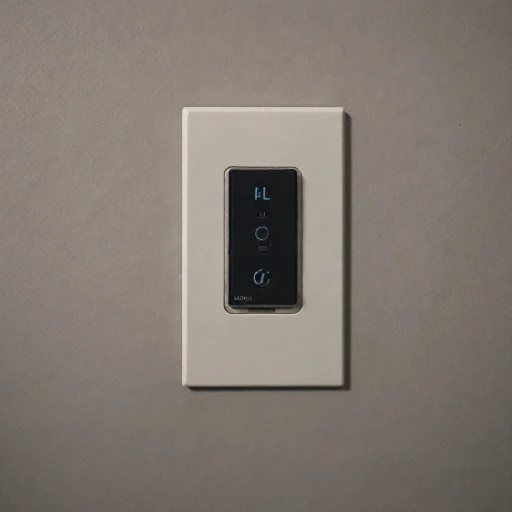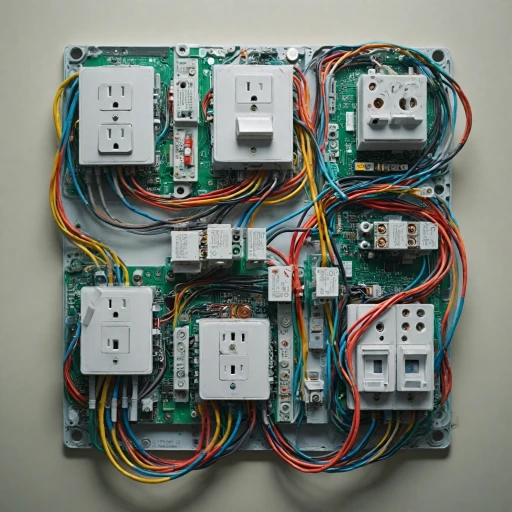
What is a 0 to 10 Volt Dimmer?
Understanding 0 to 10 Volt Dimmers
In the evolving world of smart lighting, 0 to 10 volt dimmers have become a popular choice for their reliability and versatility. But what exactly are they? 0 to 10 volt dimmers are a type of low voltage dimming system used to control lighting levels for various fixtures, including LED, fluorescent, and halogen lights. This dimmer operates by sending a control signal that ranges from 0 to 10 volts to a device like a driver or a ballast that regulates the light output. At its simplest, when the control signal is at 0 volts, the lights are off. Conversely, at 10 volts, the lights will be at their maximum brightness. These dimming systems are particularly useful in environments that demand precision lighting control, from residential spaces to commercial settings. They are often implemented in LED lighting and fixtures due to the ability to manage energy consumption effectively. Notably, the dimmer switch also functions with single pole installations and can be directly wired into your lighting system. This type of installation is especially beneficial in situations where you want straightforward lighting control without the complexity of extensive systems. For those considering an update or enhancement to their current lighting setups, the simplicity, and efficiency of 0 to 10 volt dimmers make them a strong consideration. Additionally, they can be seamlessly integrated with various smart home systems, offering an advanced level of control over your lighting environment. For more insights on how these systems can fit into your home, check out this resource on enhancing your home with a wireless dimmer switch.How 0 to 10 Volt Dimmers Enhance Energy Efficiency
Optimizing Energy Use with Dimming Systems
Using a 0 to 10 volt dimmer in your smart lighting setup can significantly improve energy efficiency. This technology works by delivering a low voltage control signal, allowing you to adjust the brightness of your LED lighting and other fixtures precisely. Unlike traditional incandescent or halogen bulbs, LED lighting benefits greatly from dimming mechanisms, contributing to lower energy consumption. When integrated with smart lighting control systems, these dimmers allow users to customize their lighting levels, reducing energy costs over time. For example, when the lights are dimmed, less power is consumed, which can not only decrease your energy bills but also extend the lifespan of the lighting fixtures. This nuanced control is particularly crucial for residential and commercial settings looking to optimize energy savings without sacrificing illumination when needed. Furthermore, many modern dimmers are designed to work seamlessly with low voltage and electronic low voltage systems, ensuring compatibility with various lighting fixtures, including panel lights and fluorescent LED combinations. Advanced technology in LED drivers complements this setup by providing consistent performance across different lighting scenarios. Another factor contributing to energy efficiency is the ability to set specific lighting profiles through dimming controls. Lighting control systems enhanced by LED dimmer switches offer the flexibility to create scenes that adapt to different activities or time of day. For instance, dimming the lights during the day and gradually increasing brightness as evening approaches can enhance ambiance without excessive energy use. It's noteworthy that opting for a single pole or multi-pole dimmer switch can influence how energy-efficient your setup remains. The selection depends on whether you want to control lights from one location or multiple places. This level of control ensures that you're not wasting power unnecessarily when certain areas are not in use. For more comprehensive insights on managing energy efficiently through smart lighting technologies, you might find this resource on fan control switches beneficial. It explores related aspects of home technologies that align with smart lighting solutions.Compatibility with Smart Home Systems
Seamless Integration with Smart Home Ecosystems
Compatibility with smart home systems is an impressive aspect of 0 to 10 volt dimmers, allowing users to create a cohesive and efficient lighting control environment. These dimmers act as a crucial bridge between traditional lighting control methods and advanced smart home technology, providing a scalable solution that can adapt to existing setups.
One of the primary advantages of using a 0 to 10 volt dimmer in your smart lighting system is its ability to work harmoniously with a wide array of lighting fixtures, including LED lighting, fluorescent LED, and panel lights. By adjusting the voltage—and thereby the light output—of these fixtures, the dimmers integrate well into sophisticated smart lighting setups.
The low voltage control signal of these dimmers is compatible with numerous smart home systems, offering a flexible integration path. This compatibility not only simplifies installation but also ensures that your lighting control system remains up-to-date with emerging technologies. The use of LED drivers and electronic low voltage components further enhances this compatibility, creating a streamlined experience for users seeking advanced lighting control.
When selecting dimmer switches, it is crucial to ensure that the unit can efficiently manage the dimming control and switch between different lighting modes without causing interruptions. Single pole dimmers and their accompanying drivers play an essential role in maintaining smooth dimming operations. With features like low power consumption and a single wire configuration, these dimmers support sustainable energy use, enhancing their attractiveness for environmentally conscious home design.
Moreover, the ease of upgrading LED drivers and incorporating them with 0 to 10 volt dimmers offers a user-friendly pathway to enhancing your lighting system's capabilities. With ever-increasing demands for energy efficiency and light customization, this compatibility ensures your lighting system remains a cutting-edge component in your smart home ecosystem.
Installation and Setup Considerations
Practical Considerations for Installing and Setting Up Your Dimmer System
When it comes to installing a 0 to 10 volt dimmer within a smart lighting setup, there are a few critical factors to consider. A well-coordinated system not only ensures a seamless integration of lights but also enhances control and energy efficiency.
The primary focus should be on understanding the wiring requirements, particularly since these dimmers work with low voltage lighting control systems. You will typically need a signal wire to connect the dimmer to a lighting fixture. Many systems require a dedicated control signal wire that can transmit the dimming control signals effectively, ensuring that the LED drivers receive accurate instructions from the dimmer switch.
Additionally, checking the compatibility of your lighting fixtures with the dimmers is critical. Some fixtures, especially those using fluorescent LED or incandescent halogen technology, may require specific electronic low voltage dimming systems or additional components to handle dimming smoothly. Always refer to the product description or manufacturer guidelines to confirm the suitability of your fixtures.
Moreover, consider the physical setup of your switch. Whether opting for a single pole dimmer or a more complex system, knowing the layout and unit price of components will help you build an efficient lighting control setup. Systems may vary based on whether they are designed for residential spaces or commercial use, and requirements can differ between single lights and multiple grid setups.
Shipping logistics can also play a role. Some suppliers offer free shipping on shipping orders, which can influence your budget and timeline. Thus, planning ahead ensures all parts of your system, including lights and dimmers, are compatible and delivered in a timely manner, allowing you to fully enjoy the benefits of a controlled lighting environment.
User Experience and Control Features
Exploring User Interaction with Smart Dimmers
The user experience is a critical aspect when delving into the realm of smart lighting, particularly with 0 to 10 volt dimmers. These dimmers offer not only energy efficiency but also a seamless way to control lighting fixtures. Here's how they enhance the user experience:- Intuitive Control Features: Many dimmers are equipped with user-friendly interfaces, allowing you to adjust the lighting intensity with precision. Whether it's a simple turn of a dial or a press on a dimmer switch, the control is literally at your fingertips.
- Compatibility with Low Voltage Applications: As these dimmers often handle low voltage signals, they are perfect for a variety of lighting applications, including LED, CFL, and even incandescent halogen lights. This compatibility makes them a versatile choice for both traditional and modern lighting preferences.
- Sophisticated Dimming Systems: With advanced dimming control features, users can effortlessly transition between light settings. This is particularly beneficial when altering ambience across different rooms using a single control system.
- Integration with Existing Systems: Smart dimmers are designed to integrate smoothly with existing lighting control systems. This means users can upgrade their panel lights or fixtures without worrying about incompatibilities.
- Remote Access and Automation: Many smart dimmers allow for remote access through smartphones or tablets. Users can easily program lighting schedules or change settings without being in the room, offering convenience and customization.













